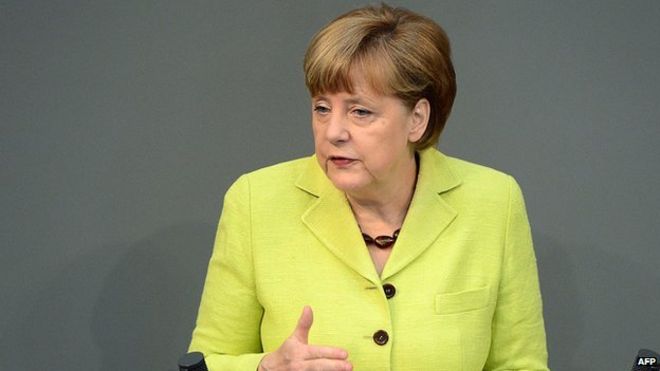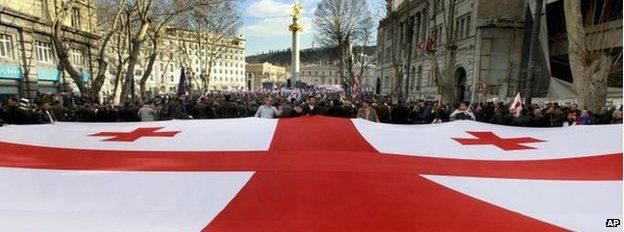EU Riga summit 'not against Russia', Merkel says
EU Riga summit 'not against Russia', Merkel says
- 12 minutes ago
- Europe

EU leaders are gathering for a summit with six former Soviet states in Latvia, overshadowed by Russia's role in the conflict in eastern Ukraine.
The EU's Eastern Partnership "is not an instrument for pursuing an expansionist EU policy", German Chancellor Angela Merkel said ahead of the summit.
The partnership "is not directed against anyone, it's not against Russia", she said.
Russia wants ex-Soviet states to join a Moscow-led "Eurasian Union".
A far-reaching EU-Ukraine association agreement angered Russia.
The Ukraine crisis erupted after the last Eastern Partnership summit, in Lithuania in November 2013. That was when former Ukrainian President Viktor Yanukovych - an ally of Russia - refused to sign the association agreement, in an abrupt reversal of policy.
He fled from Kiev in February 2014 amid vast anti-government protests in which more than 100 people died.
The pro-Western government, formed after fresh elections, signed the association agreement, but the crucial free trade part of it was suspended until January 2016 so that Russian concerns about it could be addressed.
"It's not 'either or' - partnership or not - so we are ready to talk about worries over the economic association with Ukraine," Mrs Merkel told the Bundestag - the lower house of the German parliament.
But she stressed that it was each partner state's "sovereign decision if they want to forge close ties... nobody has a right to block that path".



Spreading EU values
The two-day Riga summit is scheduled to start with a dinner at 18:00 local time (15:00 GMT). EU leaders will hold talks with their counterparts from Armenia, Azerbaijan, Belarus, Georgia, Moldova and Ukraine.
There is much alarm in Latvia and its Baltic neighbours Estonia and Lithuania over Russia's annexation of Crimea and support for pro-Russian rebels in eastern Ukraine. The three Baltic states were under Russian domination during decades of communism.
The EU trade and association agreements aim to encourage ex-Soviet states to adopt EU standards not only in trade, but also in human rights and governance.
Chancellor Merkel said the agreements were tailored to the situation of each partner state individually.
The EU would respect the wishes of Armenia, Azerbaijan and Belarus to maintain close ties with Russia, she said.bbc
Comments